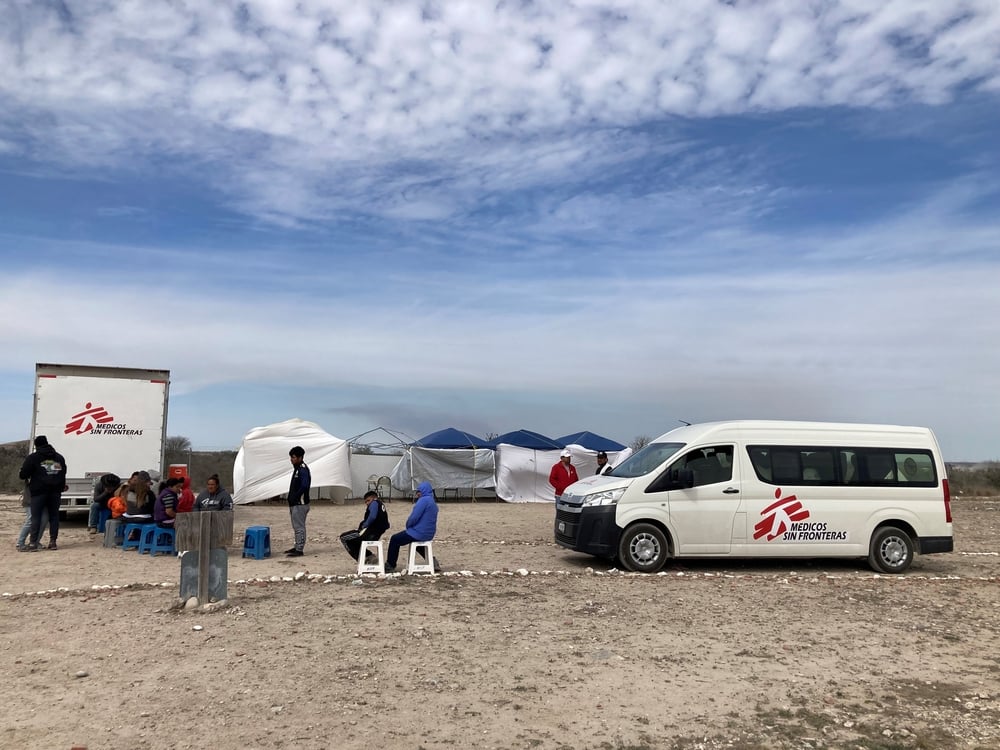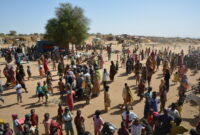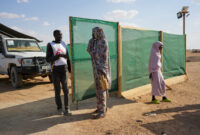Title 42 ends, but migration crisis continues in Mexico and Central America
On May 11, when the Biden administration ends the COVID-19 public health emergency nationally, Title 42, a public health order used to shut down asylum at the US southern border for more than three years, officially comes to an end.
Invoked by the Trump administration in 2020 and repeatedly extended by the Biden administration, Title 42 allows the blocking and expulsion of people seeking protection at the US southern border.
The policy has been used to authorize over 2.8 million expulsions from the US to cities along the US-Mexico border and caused a humanitarian catastrophe for migrants seeking safety and well-being in the United States. For three years due to this policy, thousands of people have been left abandoned with limited access to shelter, basic services, and threats of violence in cities which do not have the security or resources to meet the massive needs.
Doctors Without Borders/Médecins Sans Frontières (MSF) teams in cities such as Reynosa, Matamoros, Piedras Negras and Ciudad Acuña have witnessed how this policy left vulnerable people without access to basic health services and mental health support and exposed thousands of people to extreme weather, lack of shelter, insufficient access to food, and insecurity.
“It’s great news that Title 42 will finally end. It falsely used public health to block people from seeking asylum and put countless people in danger,” said Adriana Palomares, MSF country director in Mexico and Central America. “We were hoping that processes to welcome those seeking protection would be restored with the end of Title 42. Unfortunately, the Biden administration appears focused on erecting new barriers to accessing asylum, including through the final rule released today that will bar many from accessing the protection they desperately need. We know that policies of deterrence don’t work, and all this will do is expose more people to violence and danger.”
In addition to a slew of new immigration policies recently rolled out by the Biden administration, once Title 42 expires, the US government will return to processing migrants under existing US immigration law, known as Title 8. Under Title 8, migrants can face a fine or penalty before being deported. If caught trying to re-enter the United States, they can face criminal charges and be banned from entering the US or seeking asylum for five to 20 years.
“The Biden administration promised to build a safe, fair and humane immigration system,” said Palomares. “Instead, it has continued or expanded ways to keep people from seeking asylum at the US southern border. For many of the patients we treat along the migration route, returning home is not an option.
“Pushing migrants back, detaining them, abandoning them, or purposefully making the process so difficult that they just give up their quest to reach the United States, is cruel policy that only endangers people”.
Adriana Palomares, MSF country director in Mexico and Central America
Currently, for thousands of people who are at the northern border of Mexico, the only way to access asylum is through a digital phone application known as CBP One. The requirement that people use a phone application to schedule port of entry appointments creates a massive barrier for asylum seekers who are often stranded for months in terrible conditions, without the proper electricity and internet access needed to schedule these appointments through a mobile phone.
Testimonies gathered by MSF teams show that CBP One is not running correctly on some phones; there are very few appointments released each day; sometimes the only appointments available are in cities thousands of miles away. Some asylum seekers had to buy a new phone with a better camera because the app requested a picture of the applicant. Others didn’t have access to Wi-Fi or even a phone or could not complete the form as they did not read English or Spanish.
This is the case of Magaly Margarita, a 29 year old Venezuelan woman who has been in Matamoros for four months. She lives with her two daughters, ages three and five, in a small tent inside the migrant camp on the banks of the Rio Bravo. Magaly made an appointment through CBP One for February 28, but was turned away by immigration officials because she had not registered her daughters.
Since then she has not been able to make a new appointment and a few days ago her cell phone stopped working.
“I haven’t been able to log in to the application for five days now. I used to log in every day. I got an error message, that there was no space for the three of us, that there is no time, that there is no date. That is a very difficult process,” said Margarita, who in the meantime will continue selling lollipops and candy on the streets of Matamoros to buy food for her and her daughters.
“What does the future look like for people like Margarita waiting at the northern border of Mexico or at some point along the migratory route in the region?” asks Palomares. “The tightening of measures against migrants and the lack of efficient legal options to reach the United States has a serious impact on the health of migrants. It is urgent that a dignified and safe asylum system be reestablished for all”.












